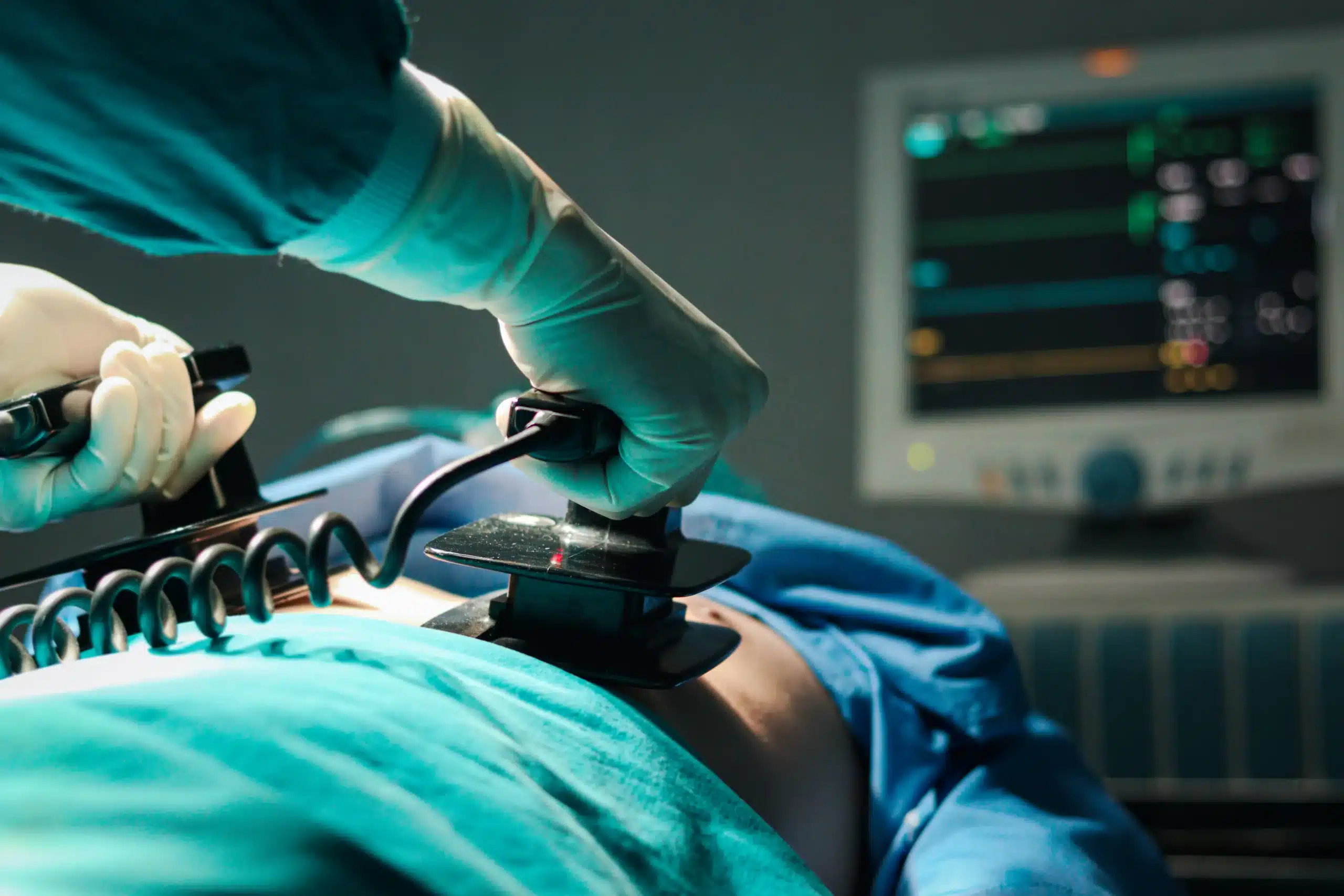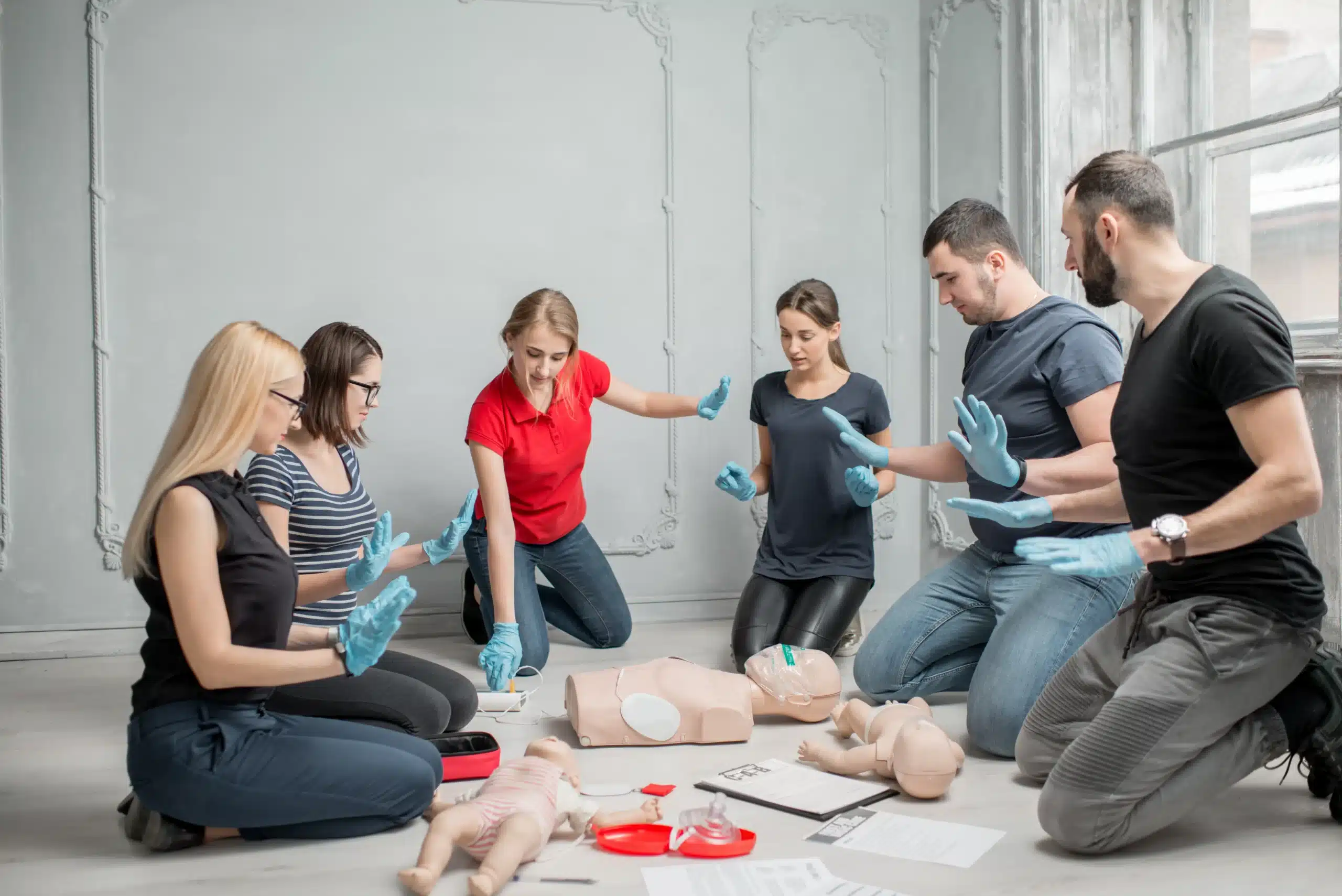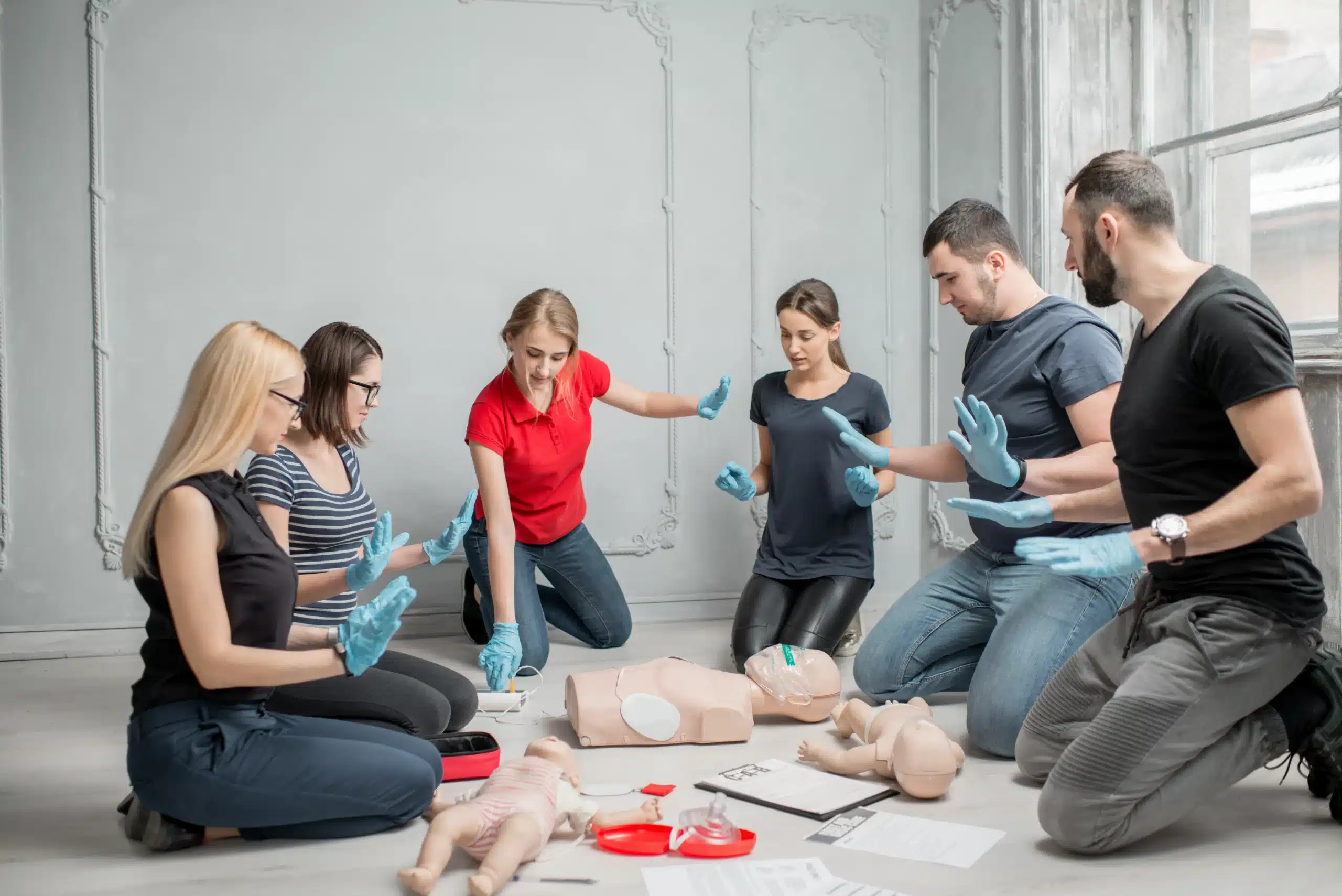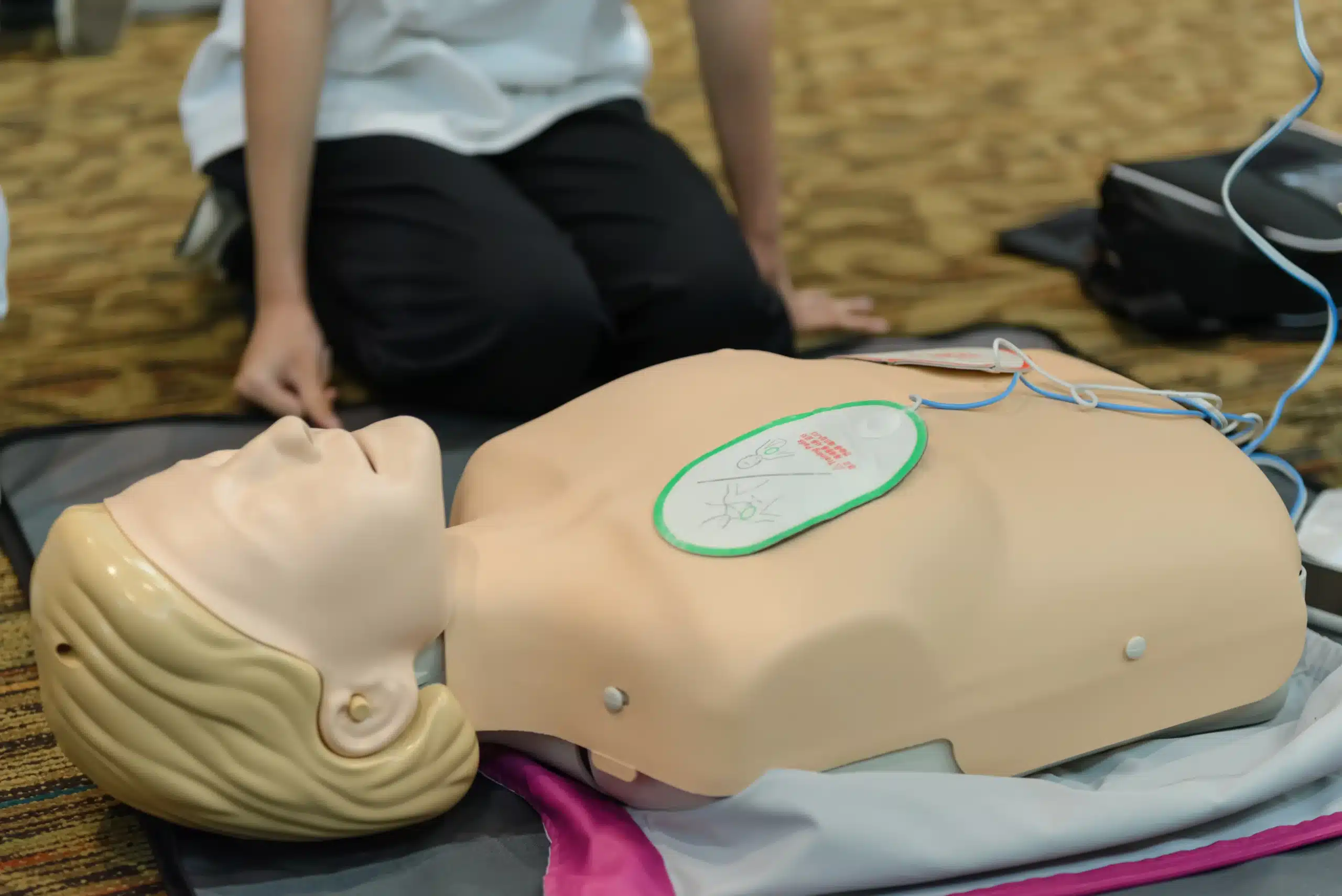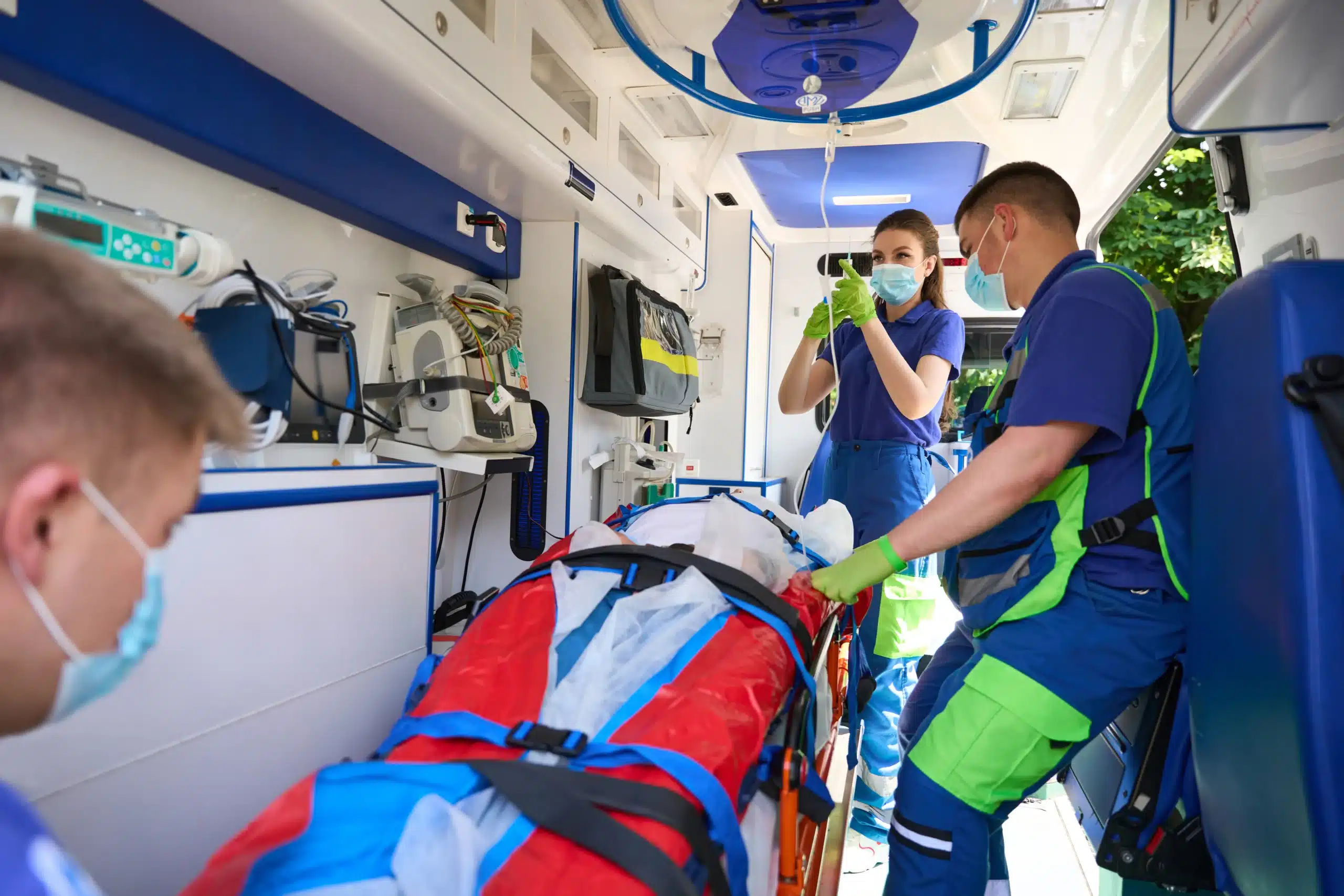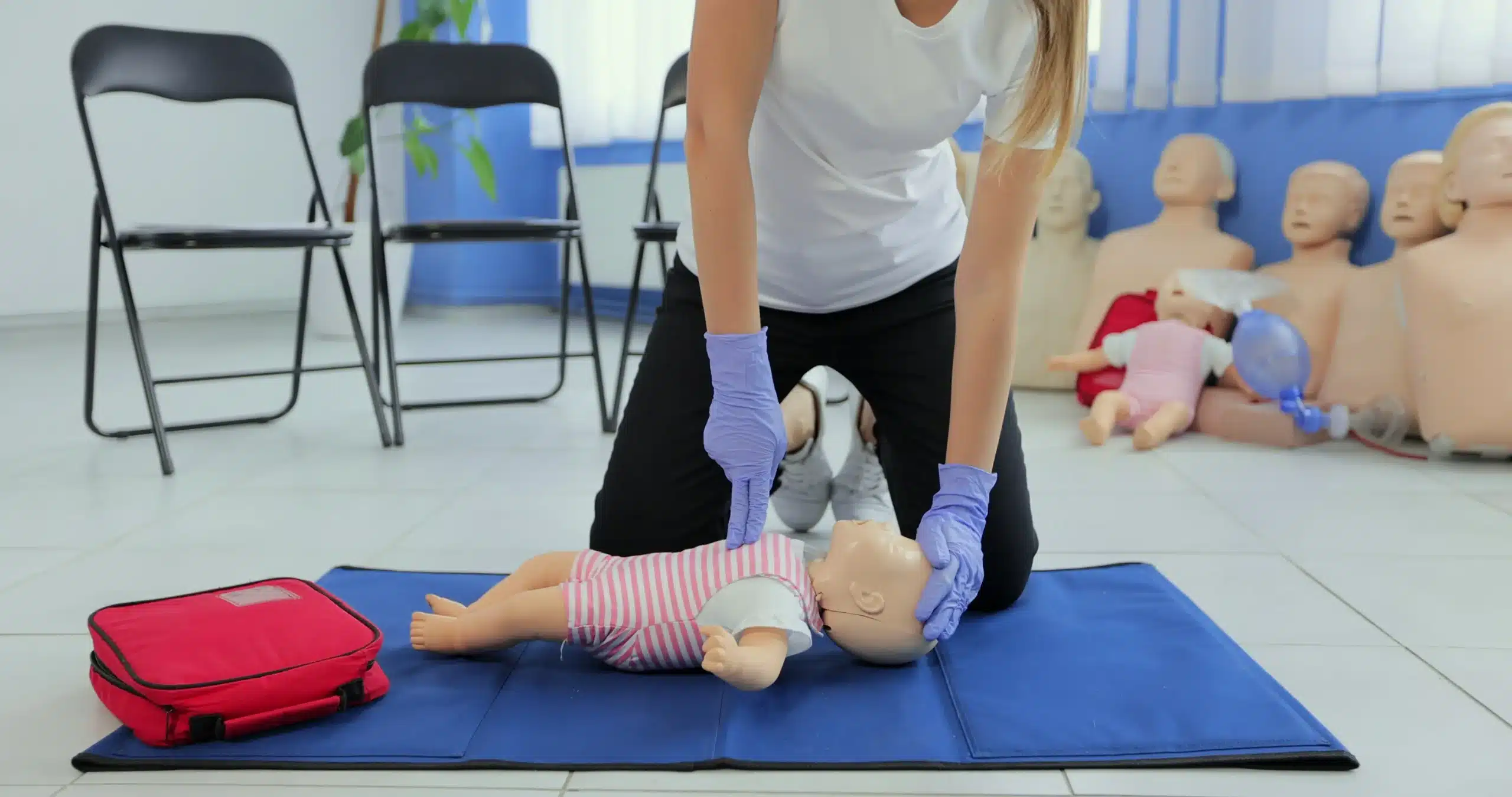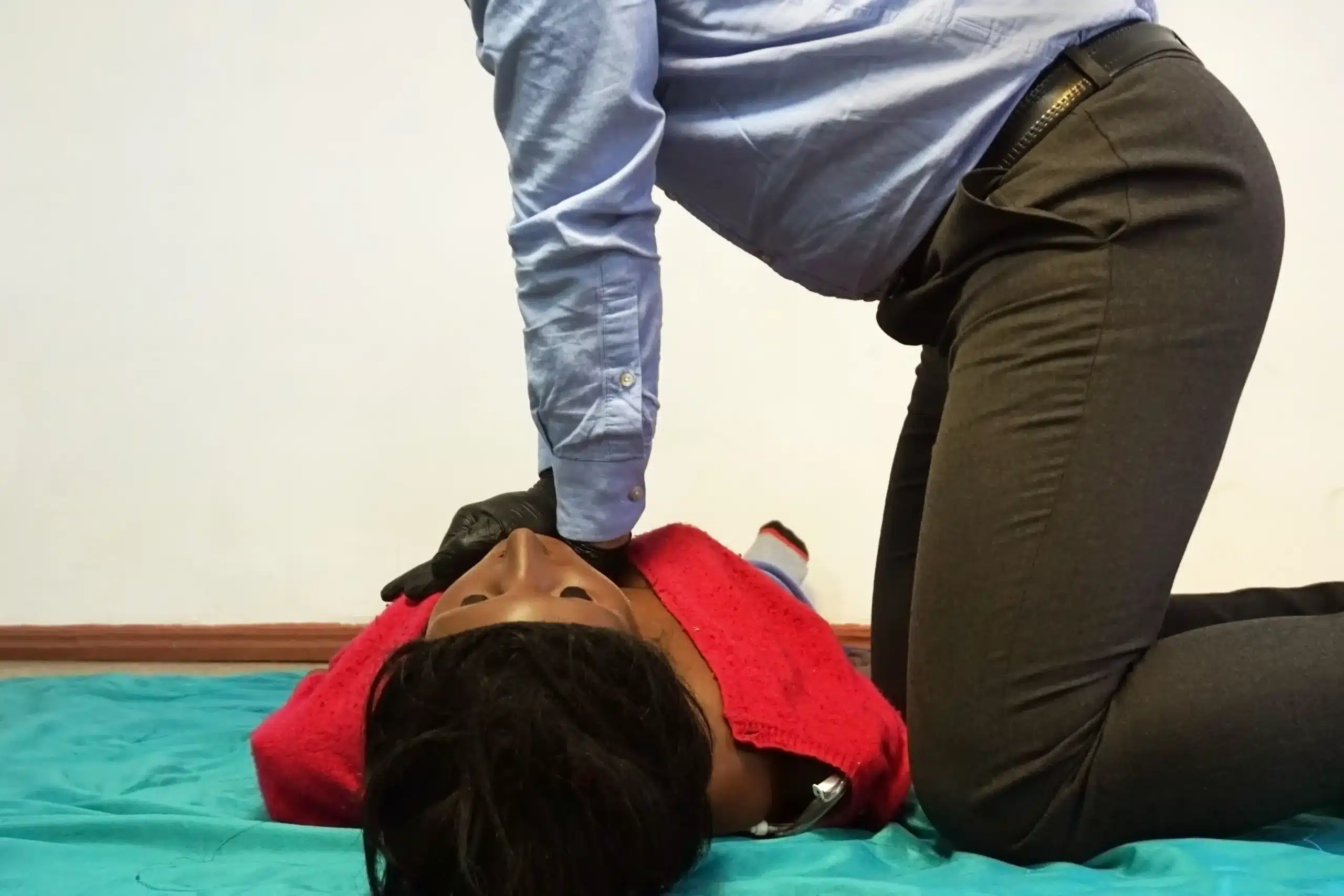Working in healthcare, you know how quickly situations can turn critical. Seconds matter in a cardiovascular emergency, and having rock-solid Advanced Cardiovascular Life Support (ACLS) skills can make all the difference. This guide breaks down everything you need to know about ACLS, from understanding its core principles to finding top-notch ACLS courses in Sacramento and staying up-to-date with the latest guidelines. Whether you’re a seasoned healthcare professional or just starting your journey, we’ll equip you with the knowledge and resources to confidently handle any cardiovascular crisis. We’ll cover costs, course formats, what to expect during training, and how to choose the right provider for your needs. Plus, we’ll offer practical tips for overcoming common certification challenges and maintaining your skills long-term.
Key Takeaways
- ACLS is essential for effective emergency care: It empowers healthcare professionals to handle life-threatening cardiovascular situations, emphasizing teamwork and clear communication during resuscitation. Regularly renewing your certification keeps your skills sharp and knowledge current.
- Choosing the right ACLS course requires careful consideration: Look for accredited providers with experienced instructors, flexible scheduling options, and comprehensive materials. Consider factors like cost, format (online, blended, in-person), and student support.
- Maintaining your ACLS certification is an ongoing commitment: Stay informed about renewal requirements, seek continuing education opportunities, and actively apply your skills in your healthcare setting to remain confident and prepared.
What is ACLS & Why is it Important?
Advanced Cardiovascular Life Support (ACLS) is a set of clinical guidelines and protocols that gives healthcare professionals the skills they need to manage life-threatening cardiovascular emergencies. ACLS training emphasizes recognizing and treating cardiac arrest, stroke, and other critical conditions. It builds upon effective Basic Life Support (BLS) and integrates more advanced interventions. Think of it as the next level of emergency cardiac care. Learn more about our ACLS courses.
Why is ACLS so crucial for healthcare providers? It empowers them with the knowledge and confidence to handle high-pressure situations. The training covers essential techniques like up-to-date CPR methods, using defibrillators, and managing emergencies that can escalate to cardiac arrest, such as choking. This training not only strengthens individual skills but also improves team dynamics and communication during resuscitation—critical factors for patient survival. Explore the importance of teamwork in ACLS.
Staying current with the latest guidelines through regular ACLS certification renewal is also essential. Medical knowledge and best practices are constantly evolving. Outdated information can be risky in these critical situations, so ongoing education is key to providing effective emergency care. Keeping your skills sharp ensures you’re always prepared to deliver the best possible care. Find ACLS renewal courses near you.
Find Top ACLS Courses in Sacramento
Finding the right ACLS course can feel overwhelming, so we’ve compiled a list of reputable providers in Sacramento to help you get started. These training centers offer various options to fit your schedule and learning style.
Safety Training Seminars
Safety Training Seminars offers ACLS Blended Learning courses designed for busy healthcare professionals. This format combines online learning with in-person skills sessions, allowing you to study at your own pace and then practice essential techniques with experienced instructors. They focus on providing comprehensive training while accommodating the demands of healthcare careers. Learn more about their ACLS training.
NorCal Emergency Medical Training
NorCal Emergency Medical Training provides ACLS Initial Training classes in Sacramento, Roseville, and Rancho Cordova. Their courses cover the core concepts and skills needed to manage cardiovascular emergencies effectively. They aim to equip participants with the knowledge and confidence to respond swiftly and efficiently in critical situations. Check out their website for more information on their ACLS courses.
No Stress EMS
No Stress EMS specializes in ACLS certification and recertification courses. Their approach emphasizes practical skills and real-world application, making it a valuable choice for healthcare providers seeking to refine their emergency response capabilities. They focus on creating a supportive learning environment where you can comfortably develop and master crucial ACLS techniques. Explore their ACLS training in Sacramento.
UC Davis Health
UC Davis Health offers ACLS classes that underscore the importance of basic life support (BLS) in patient care. Their training integrates effective BLS techniques with advanced ACLS interventions, ensuring participants are well-prepared for diverse emergency scenarios. This integrated approach reinforces the foundational skills essential for successful patient outcomes. You can find more information on their website by searching for “UC Davis Health ACLS courses.”
Understand ACLS Course Costs & Formats
Getting ACLS certified or recertified involves a few different paths, each with varying costs and time commitments. Understanding these options will help you find the best fit for your schedule and budget.
Initial Certification Costs
If you’re pursuing initial ACLS certification in Sacramento, expect costs around $140 for cash payments or $120 if you pay with a credit card via Venmo at providers like No Stress EMS. Some providers offer skills-only sessions for about $100, but these usually require completing an online portion through the American Heart Association (AHA) separately, which costs around $150. Factor in both expenses when considering this option.
Renewal Course Pricing
Already certified and need to renew? Several providers, including NorCal CPR Training, offer ACLS renewal courses in Sacramento, Roseville, and Rancho Cordova. These courses focus on refreshing your skills based on the latest AHA guidelines. Check with your chosen provider for specific pricing.
In-Person vs. Online Options
Juggling a busy schedule? Online ACLS training offers flexibility. This blended learning format combines online modules with in-person skills sessions. You work through the theoretical material at your own pace and then attend a hands-on session. Sacramento CPR Certification offers this blended learning approach.
Blended Learning Opportunities
Blended learning is a popular choice, and providers like Sacramento CPR Classes offer courses designed for healthcare professionals in the Sacramento area. This format lets you complete the theoretical coursework online before attending an in-person skills session.
Prepare with Prerequisites & Materials
Getting ready for your ACLS class involves gathering the right materials and completing any pre-course work. Knowing what to expect helps you walk into class confident and prepared to learn.
Essential Textbooks and Manuals
The American Heart Association (AHA) provides the curriculum for ACLS courses. You’ll need an AHA ACLS Provider Manual to follow along with the course content. You can often download the manual, purchase a hard copy, or sometimes even borrow one. Check with your chosen course provider to confirm their specific requirements. Often, they’ll ask you to complete a pre-test before the course begins, so factor that into your preparation time. If you’re recertifying, don’t forget to bring your current, expiring ACLS provider card to class.
Prepare Before Your Course
ACLS courses often use a blended learning format, combining online modules with in-person skills practice. This structure offers flexibility for busy professionals. Before committing to an ACLS course, carefully evaluate the program. Consider the training center’s accreditation, their adherence to the latest AHA guidelines, the instructor’s experience, the materials they provide, and the availability of technical support.
Equipment for Hands-On Practice
ACLS training emphasizes hands-on learning. You’ll work with equipment like resuscitation mannequins and defibrillator trainers to simulate real-life scenarios. This practical experience helps build the muscle memory and confidence you’ll need to respond effectively in an emergency. The course integrates basic life support (BLS) skills with advanced interventions, highlighting the importance of teamwork and clear communication during resuscitation. You can learn more about this integration through providers like NorCal CPR Training.
What Happens During ACLS Training?
This section outlines what you can expect during an ACLS course, from the curriculum and hands-on practice to the final certification exams. Understanding these elements will help you feel prepared and confident going into your training.
Course Curriculum Overview
ACLS courses cover a range of essential concepts and skills. The curriculum emphasizes the importance of high-quality basic life support CPR, integrating it with advanced interventions. You’ll learn to recognize and treat life-threatening cardiovascular emergencies like cardiac arrest, stroke, and other conditions that can lead to cardiac arrest. The training also stresses effective team dynamics and communication, crucial for successful resuscitation efforts. Expect the course content to align with the most current American Heart Association guidelines for CPR and ECC.
Practice Hands-On Skills
ACLS training isn’t just about lectures and textbooks. A significant portion involves hands-on practice to develop crucial skills. You’ll work with equipment like defibrillators and learn to administer medications and other interventions. You’ll also practice current CPR techniques and other essential skills for managing cardiovascular emergencies. This practical experience is invaluable for building confidence and competence in real-world scenarios. Safety Training Seminars offers hands-on training in Northern California.
Take Written and Practical Exams
To receive your ACLS certification, you’ll need to pass both a written and practical exam. The written exam assesses your understanding of the course material, while the practical exam evaluates your ability to perform the skills you’ve learned. Some providers have different refund policies, so make sure you understand the specifics of your chosen provider. Before your exam, gather your required materials, including your AHA provider manual and any pre-test completion certificates. If you’re recertifying, don’t forget your expiring ACLS card. Contact Safety Training Seminars to learn more about their policies.
Discover Unique Features of Sacramento ACLS Courses
Sacramento ACLS courses offer several unique advantages, blending cutting-edge techniques with practical considerations to provide a comprehensive learning experience. These features help prepare healthcare providers for the real-world challenges of advanced cardiac life support.
Simulation-Based Training
ACLS courses in Sacramento often incorporate simulation-based training, a highly effective method for mastering essential skills. Simulations create a safe environment to practice managing complex medical emergencies, like cardiac arrests or strokes. This experiential learning builds confidence and competence, allowing participants to hone their decision-making abilities and teamwork skills. By practicing in controlled scenarios, healthcare professionals develop the muscle memory and critical thinking needed to respond effectively in time-sensitive situations.
Updated AHA Guidelines
Sacramento ACLS courses adhere to the latest guidelines set by the American Heart Association. This ensures that the training reflects the most current scientific evidence and best practices in advanced cardiovascular life support. Staying up-to-date with these guidelines is crucial for healthcare providers to deliver high-quality patient care. Providers can trust their training aligns with the latest recommendations for managing cardiovascular emergencies.
Flexible Scheduling Options
Recognizing the demanding schedules of healthcare professionals, many ACLS providers in Sacramento offer flexible scheduling. Online ACLS courses provide 24/7 access to study materials, allowing participants to learn at their own pace. This flexibility makes it easier to fit essential training into busy work lives. Blended learning formats, combining online modules with in-person skills sessions, offer another way to balance online learning with hands-on practice. This variety ensures providers can find a training format that suits their individual needs.
Choose the Right ACLS Course Provider
Finding the right ACLS course provider is crucial for a successful learning experience. It’s more than just checking a box; it’s about gaining the confidence and skills to handle real-life emergencies. Here’s what to consider:
Accreditation and Reputation
Look for providers accredited by a recognized leader in cardiovascular care, like the American Heart Association (AHA). AHA courses adhere to the latest guidelines and best practices, ensuring your training is current and credible. For example, AHA-aligned ACLS classes are designed to meet these rigorous standards. Also, prioritize training centers authorized by the AHA, which signifies their commitment to quality. This ensures you receive high-quality training that meets industry standards.
Instructor Qualifications
Experienced instructors who are passionate about teaching can make all the difference. A reputable provider will have instructors well-versed in the latest ACLS protocols and dedicated to creating a supportive learning environment that builds student confidence. Effective ACLS courses, whether in-person or online, should also offer comprehensive study materials in various formats to accommodate different learning styles. This ensures you grasp the concepts effectively.
Student Support Services
A good ACLS course provider offers clear guidance and support throughout your certification journey. This includes providing clear instructions on what to bring to class, such as your AHA book and any pre-test certificates, especially for recertification. Efficient administrative processes, like online registration and payment, are also important. Look for providers that offer streamlined processes, including prompt delivery of your CPR certification card after class completion. This allows you to focus on learning, not logistics.
Overcome ACLS Certification Challenges
Getting your ACLS certification is a rewarding but sometimes challenging process. Don’t worry, we’re here to help you address those hurdles. With the right strategies, you can successfully complete your training and feel confident in your advanced life support skills.
Manage Time as a Busy Professional
We get it—you’re juggling a demanding career, personal life, and now ACLS training. Finding the time can feel overwhelming, but it’s absolutely doable. Many ACLS course providers understand the time constraints of healthcare professionals and offer flexible scheduling. Look for providers like Safety Training Seminars that offer blended learning, combining online coursework with in-person skills sessions. This approach lets you work through the material at your own pace, fitting it around your existing commitments. You can study on your commute, during lunch breaks, or whenever you have a free moment.
Handle Psychological Stress
ACLS training delves into high-stakes medical scenarios, and it’s natural to feel some psychological stress. Remember, it’s okay to acknowledge these feelings. Talking to colleagues or seeking support can make a big difference. Focus on building your confidence through practice and preparation. The more comfortable you become with the material and procedures, the more prepared you’ll feel to handle the emotional demands of real-life emergencies. Resources like this article on psychological challenges offer additional insights for healthcare workers.
Balance Work and Training
Integrating ACLS training into your already busy work schedule requires a strategic approach. Blended learning formats can be particularly helpful, allowing you to complete some coursework online and reserve in-person sessions for hands-on practice. Look for courses that emphasize practical skills and simulations, like those offered by Safety Training Seminars. This hands-on approach reinforces your learning and makes it easier to apply your new knowledge directly to your work. Think of it as an investment—the time you dedicate to training will ultimately enhance your skills and improve patient care.
Check Student Feedback & Success Rates
Before committing to an ACLS course, it’s smart to check out what other students are saying. Feedback and success rates offer valuable insights into a program’s quality and effectiveness.
Participant Testimonials
Positive testimonials often indicate a worthwhile learning experience. For instance, one study revealed that 96% of ACLS students felt prepared for real-life emergencies after finishing their training. This positive response highlights the practical focus of these courses. Another study demonstrated how a comprehensive program combining various teaching methods and simulations significantly improved both ACLS skills and knowledge for healthcare professionals.
Certification Pass Rates
Strong certification pass rates are another crucial factor. Simulation-based training has proven particularly effective in this regard. Research shows that this training style not only boosts knowledge but also translates to improved real-world performance. In one study, 68% of residents trained using simulations adhered to American Heart Association (AHA) standards during in-hospital cardiac arrests, compared to 44% of residents with conventional training. Considering the strict recertification requirements and the importance of passing your ACLS course the first time, selecting a program with a solid track record is essential. You can often find this information on a provider’s website or by contacting them directly.
Maintain Your ACLS Certification
Keeping your ACLS certification current is crucial for providing effective patient care. It’s not a one-and-done deal; consistent upkeep ensures your skills and knowledge remain sharp.
Understand Renewal Requirements
ACLS certification is valid for two years. After that, healthcare providers must complete an ACLS renewal course to maintain their certification and stay up-to-date with the latest ACLS guidelines and best practices. This commitment to ongoing training demonstrates your dedication to providing the best possible care. Check with your certifying body, such as the American Heart Association, for specific renewal requirements.
Explore Continuing Education
Don’t just renew—actively pursue continuing education. Regularly refreshing your ACLS skills reduces panic in real emergencies. Outdated knowledge can be dangerous, so embrace opportunities to stay informed and confident. Consider workshops, online resources, and peer-to-peer learning to keep your skills honed. Staying current with advancements in emergency cardiovascular care is essential for optimal patient outcomes. Look for courses that cover updates to guidelines and emerging best practices.
Apply ACLS in Healthcare Settings
ACLS classes emphasize the importance of basic life support CPR to patient survival. They also highlight the integration of effective BLS with ACLS intervention, and the importance of effective team interaction and communication during resuscitation. Put your knowledge into practice by actively participating in simulations and mock codes. This practical application reinforces your training and prepares you for real-world healthcare settings. Effective teamwork and communication are vital in high-pressure situations, and regular practice ensures you’re ready to perform at your best. Seek opportunities to apply your ACLS skills within your workplace, such as participating in code teams or leading training sessions.
Related Articles
- The Lifesaving Importance of CPR in Healthcare
- BLS Classes in Sacramento: Your Complete Guide – San Francisco Bay Area CPR Classes
- CPR Training in Sacramento: Your Ultimate Guide – San Francisco Bay Area CPR Classes
- CPR Classes in Sacramento: Find AHA-Certified Training – San Francisco Bay Area CPR Classes
- AHA ACLS Classes in Bay Area, CA – San Francisco Bay Area CPR Classes
Frequently Asked Questions
What exactly does ACLS cover that basic CPR doesn’t?
ACLS builds upon the foundational skills of BLS (CPR) to manage more complex cardiovascular emergencies. It includes advanced airway management, establishing IV access, interpreting electrocardiograms (ECGs), administering specific medications, and working effectively within a team during resuscitation. It’s designed for healthcare professionals who need to handle critical situations.
How do I choose between different ACLS course formats?
Consider your learning style and schedule. Blended learning (online coursework plus in-person skills practice) offers flexibility, while traditional classroom courses provide a more structured environment. If you learn well independently and need to work around a busy schedule, blended learning might be a good fit. If you prefer face-to-face interaction and a set learning schedule, a traditional classroom setting could be better.
What if I don’t pass the ACLS certification exam?
Don’t get discouraged! Most providers allow you to retake the exam. Talk to your instructor about areas where you struggled and get additional practice before trying again. They can offer guidance and resources to help you succeed. Many providers also offer refresher courses or additional practice sessions.
How can I fit ACLS training into my already packed schedule?
Look for flexible options like blended learning courses that allow you to complete the online portion at your own pace. Talk to your employer about scheduling adjustments or consider weekend courses. Many providers offer evening and weekend classes to accommodate busy professionals.
Besides initial certification and renewal, how can I stay up-to-date on ACLS best practices?
Engage in continuing education activities like workshops, online modules, and simulations. Stay informed about updates to the American Heart Association guidelines. Active participation in mock codes and simulations within your workplace can also help maintain your skills and knowledge. Consider joining professional organizations that offer continuing education opportunities in emergency cardiovascular care.


